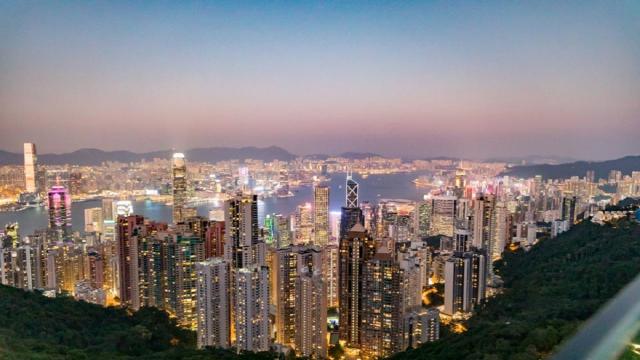Travel news is not great at the moment as the world is passing through a difficult phase with threats of a disease that has no apparent cure. It has led to travel restrictions on a large scale. However, the Economic Intelligence Unit, in its survey, examined the global economic landscape. It identified the most expensive cities for travel in 2020 and three cities in Asia share the top slots. These are Hong Kong, Singapore, and Osaka. The last city, Osaka is in Japan and it eases out Paris. Obviously, would-be travelers have to be ready to bear the burden of expensive holidays when they plan to visit these destinations.
Coronavirus could make the world's most expensive cities cheaper https://t.co/eExl7DWVKH
— The Sydney Morning Herald (@smh) March 19, 2020
CNN says this is a bi-annual survey, which has been in operation for more than three decades. It undertakes a global survey that encompasses a wide range of goods and services. The present exercise covered 37 European cities and reveals that rankings of all but four have changed for 2020. New York moved up to the fourth position and Los Angeles rose to eighth. Paris and Zurich shared the fifth slot. In the opinion of the EIU, an explanation for this upsurge could be situations that led to inflation in the prices of clothing and domestic help. It depends on the trends of the domestic and global markets.
Travel means moving out of the comfort zone
Humans are curious to learn more about their surroundings and travels for business or pleasure. The moment they step out of their homes, they move out of their comfort zones. This is especially true when they go to another country. The Economic Intelligence Unit plays a role in defining cities where living is expensive. In its opinion, some factors that contribute to the ups and downs are the nature of domestic demand and weak global energy prices.
Singapore, Osaka and Hong Kong are the world's most expensive cities in 2020, while Syrian capital Damascus is the cheapest https://t.co/Z3sydtk0f8
— Daily Mail Online (@MailOnline) March 18, 2020
CNN goes on to add that Tel Aviv in Israel is the only Middle Eastern city in the top 10.
EIU attributes its jump from 10 to 7 to rising transport costs. The Japanese cities of Tokyo and Osaka went up the ranking ladder due to the strengthening of the yen this year. Geneva lost ground and slid from fifth place to 10th. Copenhagen, which was joint seventh last year, is no longer in the list of the top 10. The depreciation of currency pushed Seoul out of the top ten.
Uncertainties for cities that rely on travel and tourism
According to Forbes, The Economist Intelligence Unit also released its latest rankings on the world's most expensive cities to live in. Compilation of the present survey was done in November 2019. The impact of the ongoing threats of a contagious disease that originated in China could change the rankings.
Its effect ill be felt in cities that rely to a great extent on income from tourism.
These cities could become cheaper because their economies could take a beating and prices would show a downward trend. Examples are Singapore and Hong Kong. They could be vulnerable to such developments. The demand for accommodation, gastronomy, and leisure activities will decline with a resultant drop in prices. Obviously, that would translate into more affordable cities to live in. Incidentally, Damascus, the capital of Syria, is now the world’s cheapest city to live in. The reasons are soaring inflation and a shortage of goods as a result of civil war in the country.
Travel industry is an indicator
People love to travel around the world.
They are driven by curiosity to see new places, meet new people and enjoy a new way of life. They want a change of scenery once in a while in order to relieve boredom. However, it depends on finances and when people have to make a choice, they prefer to avoid expensive cities. In that case, the list prepared by the Economist Intelligence Unit could be useful as a guideline. This will help budget travelers. Of course, at times, travel plans need rescheduling because of bans. That is another aspect to consider.
![Travel news - Singapore is another of the 10 most expensive cities in the world 2020. [Image source/CK TV YouTube video] Travel news - Singapore is another of the 10 most expensive cities in the world 2020. [Image source/CK TV YouTube video]](https://staticr1.blastingcdn.com/media/photogallery/2020/3/20/660x290/b_502x220x82/travel-news-singapore-is-another-of-the-10-most-expensive-cities-in-the-world-2020-image-sourceck-tv-youtube-video_2421911.jpg)



